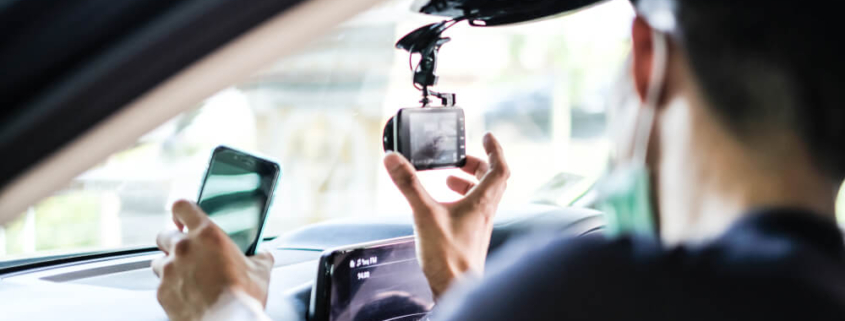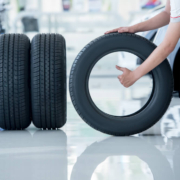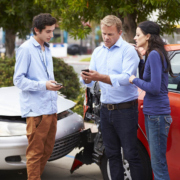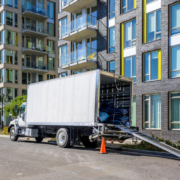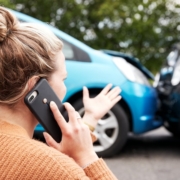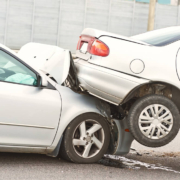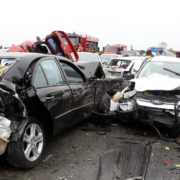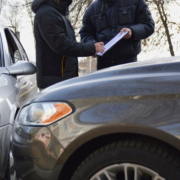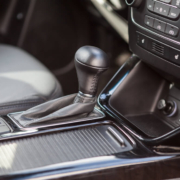How Dashcam Footage Can Impact a Car Accident Case
It’s sometimes difficult to prove the liability of the negligent party following a car accident that resulted in your injuries. A dashcam or dashboard camera can be a helpful tool in establishing fault if you are involved in an auto accident. These tiny cameras can be mounted on the vehicle’s windshield or dashboard to record everything that happens in front of the car. Most dashcams continue recording as long as the vehicle is in gear.
With that said, a few intricate models also record interior video and audio, stream directly on the internet, or show rear-facing video on the rearview mirror. As per Statista, the dashcam industry has grown at a consistent rate over the last 10 years, and millions of dollars worth of dashcam equipment are installed every year in the US.
California Allows the Use of Dashcam Footage as Evidence
Drivers can install and use dashcams in their private vehicles. However, there are a few limitations. For instance, the dashboard camera cannot obstruct windshield visibility. It cannot be too large. The size limit also depends on the installation area, like the lower-right corner or the upper center area of the windshield.
You cannot install the camera where it may get in the path of an airbag. It’s vital that you inform the other occupants if the dashcam records audio as well. You can use the recordings from your dashcam as evidence only if it fulfills these requirements.
Potential Impact of Dashcam Footage on Your Case
Advantages of Dashcam Footage
Precisely remembering and describing the events of an accident can often get challenging after a serious accident. You or the other driver may be unable to state the events accurately. In addition, errors may be made in police reports. Dashcams can reveal valuable evidence, such as someone else running a red light, another car cutting you off, or a vehicle refusing to yield the way at an intersection.
Such evidence doesn’t just prove the other driver’s fault but also depicts the precise way in which the law was violated. This makes dashcam footage valuable. A majority of car insurance claims end up as he-said-she-said disputes. You may be able to strengthen your claim with dashcam footage and save a considerable amount of time.
While this footage may not prove to be conclusive evidence of events, it can certainly assist with your claim. Dashcam footage provides strong evidence in car accident claims. The insurance company will take your claim seriously when you submit the footage. They will calculate the potential impact of the recording on a deliberating jury. You may be able to fast-track the compensation process.
Timestamped recording can provide sufficient evidence for the insurer to settle the claim without going to trial. You don’t just fast-track the process, but also save on considerable expenses and legal fees. Taking this into account, you would still need an attorney to negotiate with the insurance company.
Insurers do everything in their power to invalidate such recordings. For instance, the insurance carrier may claim the video is invaluable if the image is grainy because of fog, rain, or other conditions.
You would need to prove to the jury and judge that the recording accurately details the events in question if the case goes to trial. The judge may want to view the footage before the jury sees it. The jury’s determination of liability and damages may get affected favorably if the judge decides to permit the recording.
Risks of Dashcam Footage
It’s critical to understand that dashcam does not take sides. The dashcam footage will display your actions too, which can have a negative impact if you contributed to the accident in some manner. The car insurance company may get a court order for obtaining the recording.
For instance, the dashcam footage may show that you switched lanes multiple times before the other car sideswiped you. An expert may project that the wreck occurred when you were speeding. Dashcam audio may record your drowsiness or tiredness before the accident. Or it may prove that you were listening to loud music and were somehow distracted when the accident took place.
Car insurance companies are always on the lookout for their best interests. They will use the footage against you in whatever way possible. Dashcam footage can make serious dents in your claim if it is deemed that you were at fault for the accident too.
Incidents Captured by Dashcams
No one should be able to dispute the recording if the dashcam clearly captures the events that occurred before, during, and after the accident clearly and with a timestamp. For instance, the dashcam may be able to record the license plate, color, make, and model of the vehicle that hit you. This kind of information is highly valuable in hit-and-run accidents.
A dashcam can record the following information in addition:
- That your car was keeping straight in the same lane
- That you were not speeding
- That you were hit by another car on the right or left
- That the car traveling ahead of you swerved into your lane
Dashcam recording can show other useful events that may happen following a collision. These are a few things that can help strengthen your claim:
- The other driver’s hostility
- The other driver’s apology
- The other driver’s visibly alcohol or drug impaired behavior
Having a favorable dashcam recording doesn’t automatically help your claim. Insurance companies may still try to short-sell. You should consider speaking with an experienced car accident attorney to maximize your compensation.
Talk to a California Auto Accident Attorney Today
You may be owed compensation if someone else causes the car accident. The legal team at Garmo & Garmo, LLP has helped many victims like you. Our first try is to negotiate with the insurance company so that you get the compensation you deserve without having to go to trial. Schedule your free case review with our lawyers today. Call us at 619-897-2144 or contact us online.

